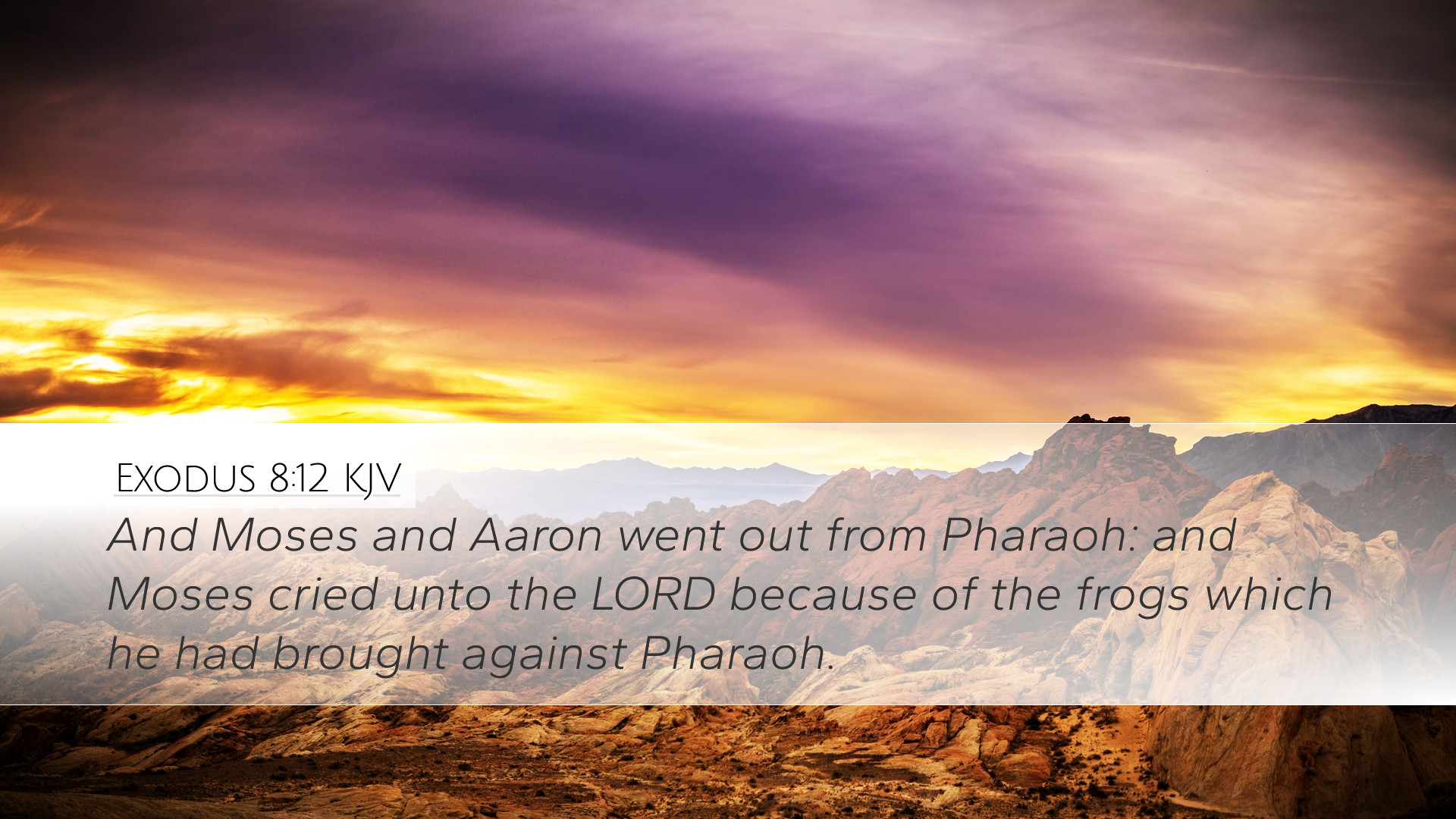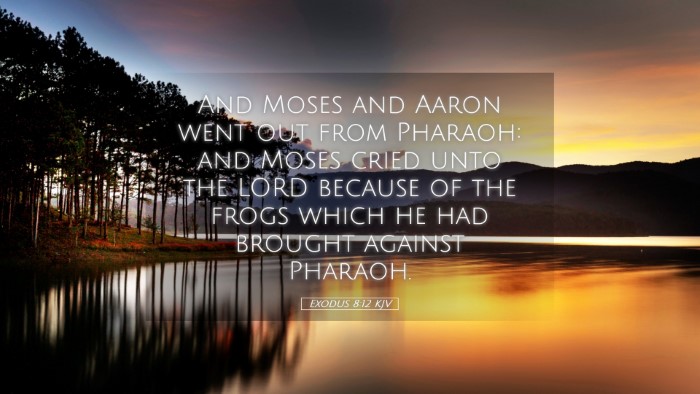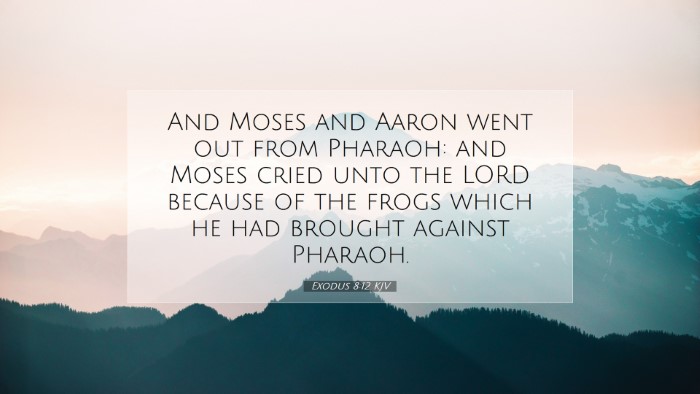Commentary on Exodus 8:12
Exodus 8:12 states:
"And Moses and Aaron went out from Pharaoh: and Moses cried unto the Lord because of the frogs which he had brought against Pharaoh."
Contextual Background
The narrative of Exodus revolves around the Israelites' deliverance from Egyptian bondage. In the backdrop of this liberation, God employs a series of plagues to demonstrate His power over the gods of Egypt and to compel Pharaoh to release the Israelites. The plague of frogs, specifically, is the second of these judgments. Understanding the context and content of this verse enhances one’s appreciation of God’s ultimate authority and the perseverance of Moses as a leader.
The Role of Moses and Aaron
Moses and Aaron are significant figures in this narrative, serving as mediators between God and Pharaoh. According to Matthew Henry, their departure from Pharaoh is not just a physical act but portrays a spiritual separation from the obstinacy and folly of unbelief. They seek divine intervention for the plight caused by the frogs, showing their reliance on God rather than mere human negotiation.
Albert Barnes notes that their cry to the Lord signifies recognition of the overwhelming nature of the plague—this emphasis on prayer reflects an essential aspect of leadership in faith, as leaders must intercede for the people while entrusting the situation to God.
The Cry to the Lord
The phrase "Moses cried unto the Lord" is noteworthy and packed with theological significance. Adam Clarke suggests that this cry represents a heartfelt plea not just for relief from the frogs but for God's glory to be made manifest. Such a cry demonstrates the appropriate response to suffering—turning to God in earnest supplication.
Significance of the Frogs
The plague of frogs serves a dual purpose. Firstly, it acts as a punishment for Pharaoh’s refusal to heed God’s command. Secondly, it reveals the impotence of Egyptian deities, particularly those associated with fertility and water, such as Heqt, depicted as a woman with a frog's head. Matthew Henry emphasizes that the manifestation of this plague directly challenges the gods of Egypt, illustrating that they hold no power against the God of Israel.
Theological Observations
- The Sovereignty of God: This event exemplifies God's control over creation, affirming that all of nature is subject to His will.
- The Persistence of Pharaoh's Heart: The subsequent verses reflect Pharaoh's hardened heart—a theme that encapsulates the struggle between divine authority and human rebellion.
- The Power of Intercession: The act of Moses crying out signifies the role of prayer and intercession in times of distress, particularly in leadership.
Moral and Practical Applications
This passage calls its readers to reflect on several moral and practical points:
- Dependence on Divine Power: In every circumstance of life, believers are reminded to turn to God in prayer as a source of strength and guidance.
- Intentional Leadership: Pastors and leaders are encouraged to be proactive in their spiritual duties, advocating for their communities with fervor.
- Awareness of Spiritual Warfare: The narrative illustrates ongoing battles between good and evil, urging believers to remain alert and reliant on God throughout their journeys.
Conclusion
Exodus 8:12 encapsulates a moment of earnest intercession amidst a backdrop of divine judgment. The fervent cry of Moses serves as a poignant reminder for those in spiritual leadership to seek God earnestly in times of distress. Additionally, it calls every believer to an awareness of God’s sovereignty over creation and the importance of prayer in every circumstance. The insights gleaned from this verse shape our understanding of God’s character and His methods of engagement with humanity.


